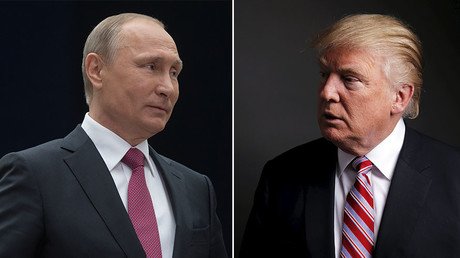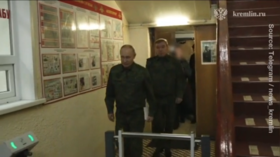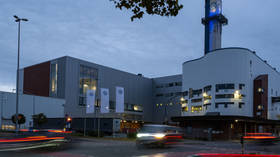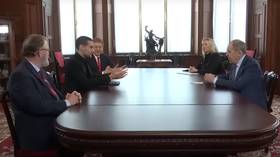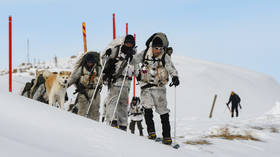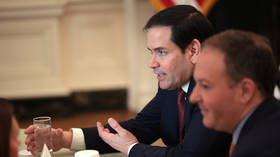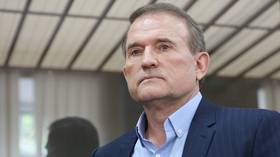US ready to consider Syria ‘no-fly zones’ if Putin and Trump find common ground at G20 meeting
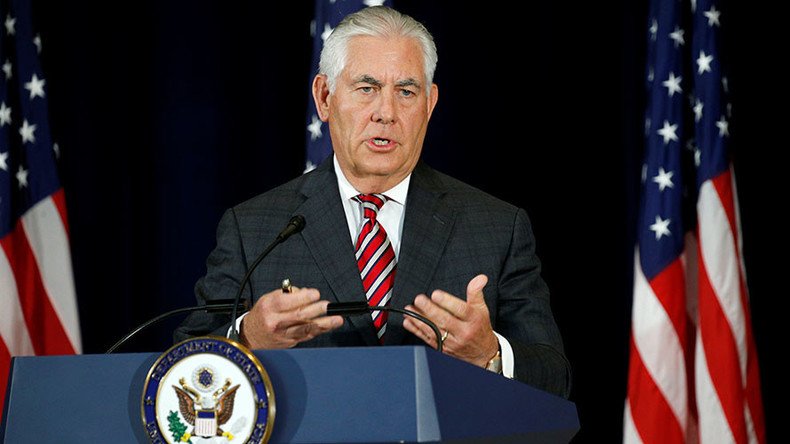
The US State Department has outlined its vision for resolving the conflict in Syria, which is expected to be a key point to be discussed during the first meeting between Vladimir Putin and Donald Trump at the G20 summit in Hamburg.
“The United States is prepared to explore the possibility of establishing with Russia joint mechanisms for ensuring stability, including no-fly zones, on the ground ceasefire observers, and coordinated delivery of humanitarian assistance,” Rex Tillerson said in a statement released by the State Department.
Ahead of the July 7 meeting between the Russian and American presidents, Tillerson insisted that Russia has a “special responsibility” to aid the peace process.
Secretary Tillerson on situation in #Syria: Russia has a special responsibility to assist in these efforts. https://t.co/8gzZxXzFOO
— Department of State (@StateDept) July 6, 2017
“The United States believes Russia, as a guarantor of the Assad regime and an early entrant into the Syrian conflict, has a responsibility to ensure that the needs of the Syrian people are met and that no faction in Syria illegitimately re-takes or occupies areas liberated from ISIS' or other terrorist groups' control,” Tillerson said.
The US Secretary of State stressed further that Moscow has “an obligation” to prevent any potential use of chemical weapons by Syrian government forces.
Tillerson said all actors in the Syrian military theater must follow guidelines to avoid accidents in the air and on the ground.
“We call upon all parties, including the Syrian government and its allies, Syrian opposition forces, and Coalition forces carrying out the battle to defeat ISIS, to avoid conflict with one another and adhere to agreed geographical boundaries for military de-confliction and protocols for de-escalation,” Tillerson said in the statement.
The Secretary of State also referred to Russian and American progress in establishing “de-confliction zones” which have already “prevented mutual collateral damage.” Tillerson said Moscow and Washington continue to maintain a line of communication to avoid incidents.
While noting that the US and Russia have a number of “unresolved differences,” Tillerson pointed out that the “potential” exists to work together in Syria in order to “produce stability and serve our mutual security interests.”
The Syrian conflict and ways of resolving it will likely feature high on the agenda during the first meeting between the two leaders, according to Kremlin spokesman Dmitry Peskov.
“I think that [the two leaders will discuss] the Syrian [conflict] resolution, the Astana process, and the issues of possible Russian-American cooperation,” Peskov said, adding, that the joint fight against terrorism will be discussed if the US is ready for it.
Secretary Tillerson: Parties in #Syria must ensure stability on the ground. https://t.co/8gzZxXzFOO
— Department of State (@StateDept) July 6, 2017
Russia, Turkey and Iran have signed a deal – endorsed by the UN Security Council – to establish so-called “de-escalation zones” in several parts of Syria. Damascus agreed to this approach but the exact borders and mechanisms for observing a truce inside those zones are still being negotiated.
READ MORE: De-confliction zones in Syria announced without Damascus’ consent illegitimate - Lavrov
As for the “de-confliction” zones, Russian Foreign Minister Sergey Lavrov said last month that this “must be some territory which the coalition unilaterally declared and where it probably believes to have a sole right to take action.”
READ MORE: US threats and actions in Syria are those of a rogue state
“We cannot recognize such zones,” he said, after the Pentagon on several occasions used the term to justify attacks on the Syrian military and pro-Damascus forces.
Safe zones in #Syria come into force: Here’s what we know so far https://t.co/CFFOBIRdxjpic.twitter.com/gflbdbDPyf
— RT (@RT_com) 6 May 2017
The recent round of talks on the Syrian conflict in Kazakhstan’s capital, Astana, centered on seven new documents on de-escalation zones and other mechanisms aimed at bringing peace to the war-torn country.
Putin: I discussed de-escalation zones in Syria with Trump, Erdogan https://t.co/ujELIRj1b5pic.twitter.com/CrzJmrrfiQ
— RT (@RT_com) 3 May 2017
The three guarantors – Russia, Turkey, and Iran – are now concentrating their efforts creating three more de-escalation zones, the head of Moscow’s delegation said. A fourth de-escalation zone in southern Syria has also been considered, but it needs the involvement of other countries, such as the US.
Russian military police to patrol Syrian de-escalation zones, won’t be part of any ‘combat mission’ https://t.co/5MFXAYCFEqpic.twitter.com/Sctp3vbT58
— RT (@RT_com) July 5, 2017
Special units of Russian military police, equipped with light arms, will be deployed to Syria’s de-escalation zones to provide safety and security there. The units will be tasked with “controlling” peace agreements and will not be on any “combat mission,” the special representative of the Russian president on Syria, and head of Moscow's delegation at the Astana talks, Aleksandr Lavrentiev, told the media Wednesday.
Washington’s participation is expected in the next round of talks in late August, where there is hope for progress, fueled by the much-anticipated Putin-Trump meeting.
